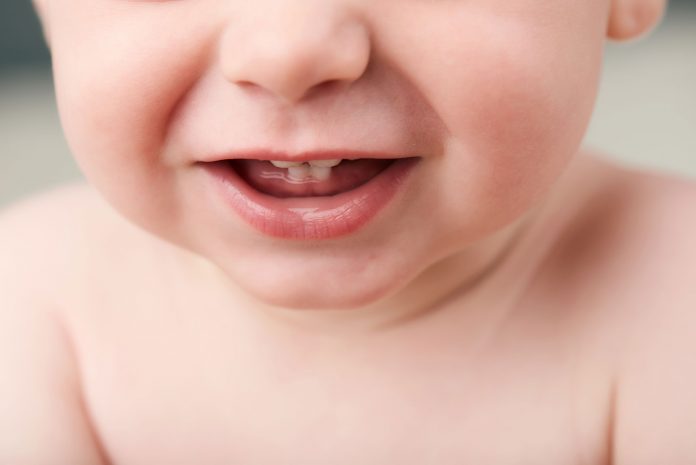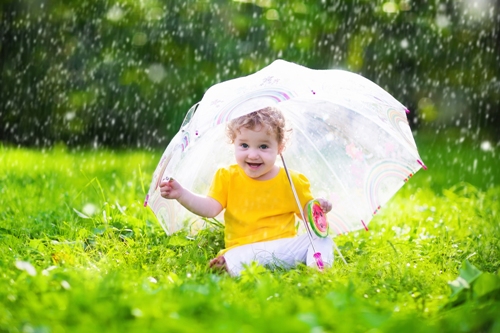This post is also available in: English বাংলা (Bengali)
New parents often have mixed feelings about teething. They are excited about the appearance of the first teeth because it is huge milestone. But they are also anxious because they have heard so many scary stories about how babies become cranky and fall sick when they are teething.
If you are feeling both thrilled and terrified at the thought of teething read this article and understand what to do.
When will your baby start teething?
The age at which teething begins varies from baby to baby.
In most babies the first tooth appears between 4 to 7 months of age. But the range can extend from 3 to 12 months.
How will you know when your baby starts teething?

Some babies stay calm and undisturbed through teething and the first sign that they are teething is the appearance of the first tooth.
Other babies become fussy and irritable when they are teething and may give you several sleepless nights before the first tooth erupts.
Some are not irritable but drool excessively and put everything they find into their mouth.
Refusing to eat and pulling their ear repeatedly may also precede teething.
Teething does not make babies sick. If your baby has fever or diarrhoea, you must consult with your doctor.
What are the first teeth you are likely to see?

In most babies, the front central teeth on the lower jaw appear first followed by the front central teeth on the upper jaw.
How to help your baby cope with the discomfort of teething?

- Breastfeed – Breastfeeding may be a little difficult for you at this point but it very soothing for your baby.
- Freeze a clean cloth and let your baby chew on it.
- Rub your baby’s gums with a clean finger.
- Freeze fruits like bananas and grapes and offer them to your baby in a nutritional nibbler.
- Offer unsweetened teething biscuits.
How to care for your baby’s new teeth?

Your baby’s first set of teeth are temporary but they are extremely important for your baby’s health and development. They play a role in chewing and speaking. They also hold place in the jaw for the permanent teeth that are developing under the gums.
So, take good care of your baby’s teeth.
- Clean the gums before the teeth appear.
Your baby’s teeth are present under the gums at birth. Clean your baby’s gums with a moist cloth wrapped around your finger after every feed.
- Brush the teeth as soon as they appear.
As soon as the first tooth appears start brushing it with a soft bristled toothbrush.
- Ask your dentist before you start using a toothpaste. Decide in consultation with your dentist whether your baby needs a toothpaste or not and which one they should use.
- Stop offering milk in a bottle to put your baby to sleep.
- Try and finish every feed/meal with a few sips of water.
Make dental hygiene fun for your baby by singing and talking while you brush their teeth. Also introduce them to their dentist early on so that they get used to someone taking care of their teeth.
By
Dr. Debmita Dutta MBBS, MD

Dr. Debmita Dutta MBBS, MD is a practicing doctor, a parenting consultant, and the founder of WPA whatparentsask.com She conducts online and offline workshops on parenting for schools and corporate organisations. She also conducts online and offline prenatal and infant care classes. She is a well-known thought-leader in parenting and an expert on play, learning and eating habits. She is the author of 7 books on parenting published by Juggernaut Books and her books are among their most read books. She is frequently quoted in national and international publications of repute for her empathetic and compassionate approach to parenting and her application of physiology and brain science to parenting.
This post is also available in: English বাংলা (Bengali)










